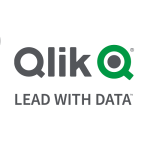What is our primary use case?
Our customers use it for data analytics on a large volume of data. So, they're basically bringing data in from multiple sources, and they are doing ETL extraction, transformation, and loading. Then they do initial analytics, populate a data lake, and after that, they take the data from the data lake into more on-premise complex analytics.
Its version depends on a customer's environment. Sometimes, we use the latest version, and sometimes, we use the previous versions.
What is most valuable?
It is very modular. It works well. We've used Data Factory and then made calls to libraries outside of Data Factory to do things that it wasn't optimized to do, and it worked really well. It is obviously proprietary in regards to Microsoft created it, but it is pretty easy and direct to bring in outside capabilities into Data Factory.
It is very flexible. You can build any features you want.
What needs improvement?
There is always room to improve. There should be good examples of use that, of course, customers aren't always willing to share. It is Catch-22. It would help the user base if everybody had really good examples of deployments that worked, but when you ask people to put out their good deployments, which also includes me, you usually got, "No, I'm not going to do that." They don't have enough good examples. Microsoft probably just needs to pay one of their partners to build 20 or 30 examples of functional Data Factories and then share them as a user base.
For how long have I used the solution?
I have been using this solution for the last five years, but probably, the last three years have been significant.
Buyer's Guide
Azure Data Factory
April 2025
Learn what your peers think about Azure Data Factory. Get advice and tips from experienced pros sharing their opinions. Updated: April 2025.
848,989 professionals have used our research since 2012.
What do I think about the stability of the solution?
It has been stable. I have not experienced any issues.
What do I think about the scalability of the solution?
It is decent for most things. I'm not sure if it is necessarily intended for large volume and high-speed streams of data. By large, I mean really big, but for pretty much anything that most users would want to do, including ourselves, it is fine. Our clients are large government organizations.
It scales fine within its environment. You can literally throw another Data Factory in or replicate one and do things pretty quickly. So, it is not at all hard to increase your processing footprint, but you have to pay for it. It doesn't end up being quite expensive. Although I haven't really done it, I would suspect that if I did the equivalent in AWS, Azure would be more expensive than AWS because of the way they price data.
How are customer service and support?
They're all right. I would rate them a seven out of 10. They do fine, but there is a lot that they don't do.
I'm not sure if even Microsoft has enough SMEs from a user point of view. They are helpful for getting it set up, making it work, and helping you figure out why it doesn't work. If you want to ask them about something that you are trying to do, they'll try to direct you to a partner, which is fine, but the partners also don't necessarily have an experience. It is Catch-22. There aren't a lot of people out there with Azure experience because Azure started to be in demand only over the last two years.
Which solution did I use previously and why did I switch?
The customer used a lot of homebrew stuff. They were doing a lot of internal stuff and some Oracle stuff. They were doing things, and they made a workaround and said, "Okay, we'll bring it into Oracle Database, and then we'll do all these things to it." We're like, "Okay, that works, but then you're taking it out of that database and putting it over into the data lake. I don't understand why are you doing that?" That's what they were doing.
How was the initial setup?
It is pretty straightforward. Devil is in the details, but you can easily get up and running in a day with Data Factory. Anybody who is comfortable in Azure can set up Data Factory, but it takes experience to know what it can and can't do or should and shouldn't do.
What other advice do I have?
It is proven, and it works. Make sure you have a well-defined use case and build a quick prototype to ensure that it, in fact, does what you need. Give yourself some benchmarks. That's exactly what we did. We defined the use case, and then we set up Data Factory. We found a couple of things that it didn't do. We figured out a way to work around those things and have it do those things. After that, we confirmed it. It is operational, and it is doing its job. It has been pretty much error-free since then.
It would become easier to use as more people become Azure-capable. If I want to find an AWS SME, I can get tons. They're expensive, but I have them. If I want to find an Azure SME, I usually have to create them. Azure was later to market than AWS. So, there are fewer people who are experts in Azure, and they are in high demand.
I would rate Azure Data Factory a nine out of 10. They just don't have enough good examples out there of things.
Which deployment model are you using for this solution?
Public Cloud
If public cloud, private cloud, or hybrid cloud, which cloud provider do you use?
Microsoft Azure
Disclosure: My company has a business relationship with this vendor other than being a customer: Partner



















